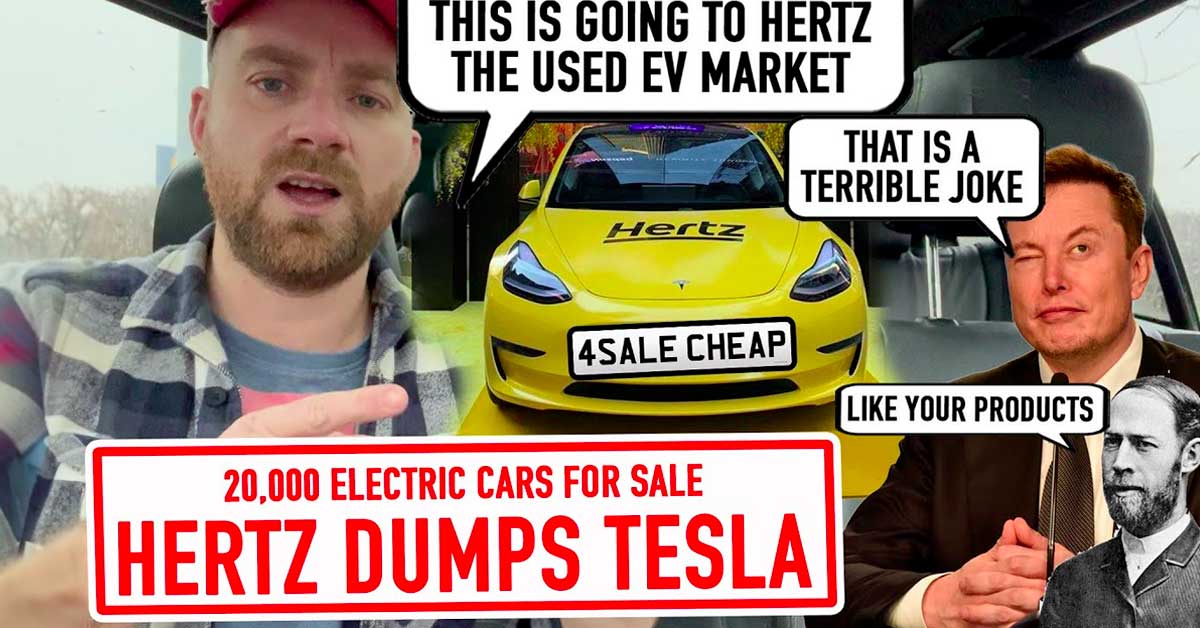Hertz Dumps Large Number of EVs, Nobody is Renting.

In today’s version of why hastily jumping on the bandwagon may not always be a prudent move, we take a look at breaking news that showcases a costly misstep by the rental car giant, Hertz.
Merely two years ago, Hertz made a substantial investment of $4.2 billion in electric vehicles, a diverse range that prominently featured Teslas. The industry insiders speculated that the move was strategic, positioning the recently emerged-from-bankruptcy company as a frontrunner in the electric vehicle rental market, seeking a competitive edge over its direct competitors.
Fast-forward to 2024, and it appears Hertz might have acted too swiftly. Recent announcements reveal the company’s decision to offload as many as 20,000 electric vehicles from its fleet, signaling a significant departure from its initial vision.
According to a Reuters report, Hertz cites the higher repair costs associated with electric vehicles in the event of collisions or damage, as the primary reason for this pivot. This comes alongside an apparent lack of consumer demand as well.
Hertz had ambitious plans to convert 25% of its fleet to electric vehicles by the end of the year. However, consumer preferences have spoken louder than these intentions, revealing a stronger inclination towards conventional combustion-powered vehicles.
The situation also raises concerns about the consequences of hastily adopting new technology. It underscores the delicate balance between the eagerness to embrace innovation and the need for a well-thought-out and sustainable strategy. Hertz’s shift back to gas-powered vehicles serves as a cautionary tale for businesses and industries exploring rapid transitions.
Moreover, this development resonates with broader discussions about the future of transportation, especially in states like California, which has pledged to outlaw the sale of gasoline-powered vehicles by 2035. The Hertz case prompts us to contemplate whether practicality grounds such ambitious mandates or if they pose more of a political statement than a realistic vision for the future.

